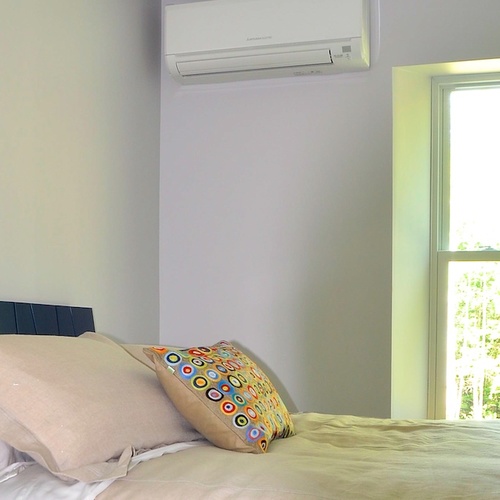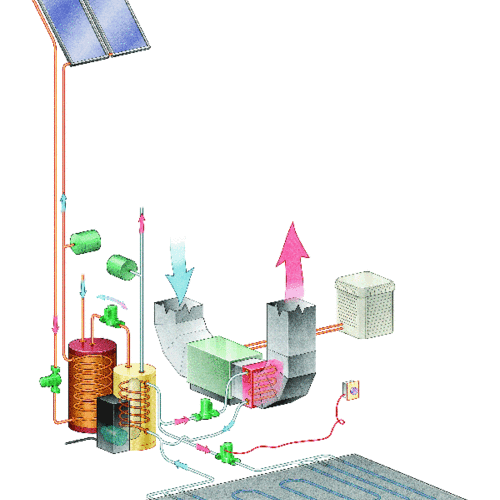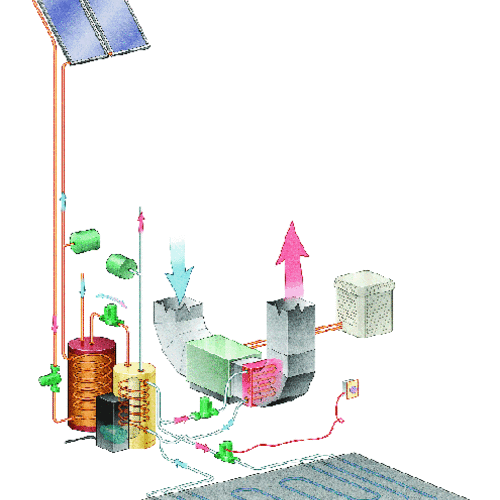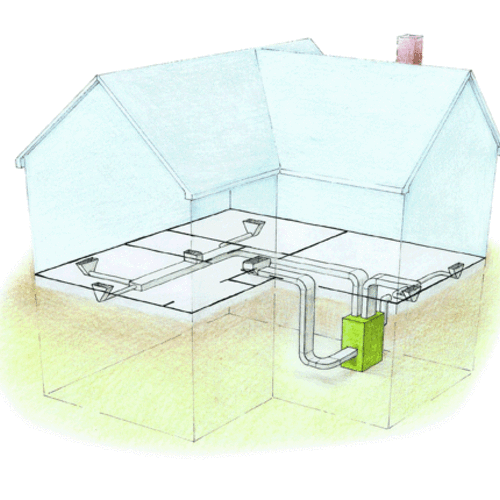ABOUT HEAT PUMPS
Heat pumps don’t create heat in the same way that a fuel-burning appliance does. They do need electricity (or another fuel source) to operate, but they can produce several times as much heat energy as the electricity they consume. However, a heat pump’s ability to extract heat is not unbounded; at some point it can get cold enough outside that air-source heat pumps become unable to maintain the indoor temperature (balance point). Although the relevant outdoor temperature may vary depending on the heat pump design, this rule applies to every air-source heat pump.
Ground-source heat pumps are among the most expensive mechanical systems to install, but they provide heating and cooling, so the higher cost is a little easier to swallow. Air-source heat pumps are more affordable than ground-source heat pumps.
Air-source versus ground-source
There are two basic kinds of heat pumps used for residential space heating: air-source heat pumps and ground-source (sometimes called geothermal) heat pumps. Ground-source heat pumps can be open-loop or closed-loop systems.

This article is only available to GBA Prime Members
Sign up for a free trial and get instant access to this article as well as GBA’s complete library of premium articles and construction details.
Start Free TrialAlready a member? Log in










5 Comments
Efficient Heat Pumps
What are the most efficient ground to water and/or air to water scroll type Heat Pumps for hydronic radiant heated floors?
air source heat pump in Mpls, Mn
Hi- I have a client in Mpls, Mn with a new Lennox #SLP98UH090V36B furnace which utilizes both natural gas and an air source heat pump. There is supposedly a setting that can be changed as to when you want the heat pump to shut off and switch to natural gas. As our temps in winter here get very cold, the heat pump will loose enough efficiency at some point such that natural gas makes more sense. Do you have a resource you can refer us to that helps educate us on what this set point should be . Happily, the client gets a very low $.03 kWh rate for the heat pump (dual fuel program by our utility) so maybe the financial breakeven temp is lower than the "ecologically beneficial" breakeven point?
Thanks-
Bob
Response to Robert Alf
Robert,
There are two ways to answer this question: consult the installation manual for the Lennox unit, or contact a technical representative at Lennox. The phone number for Lennox International is 972-497-5000.
mini split heat exchanger
Hi
We are building an A-Frame in Upper MI. We were going to put in radiant flooring...but now I am thinking Mini heat exchanger. The house is insulated 50 roof...30 walls. 1250 square feet. Two levels 850sq. ft on bottom, 450 sq. ft second level. We also have wood burning stove as back up, as we are all electric. We someday(after we finish building would like to go solar). We have tankless water heater, well and septic systems. This is my retirement home so I want to keep utility costs down...does it make sense to go with the mini or stay with the radiant. I guess the real question is will the boiler and circulator cost more to run then the mini? I dont need air conditioning as we are zone 7.
Response to Maureen Mcginnis
Maureen,
I'm not quite sure what you mean by a "mini heat exchanger," but from context I'm guessing that you are talking about a minisplit heat-pump.
The cost to install minisplit heat pumps depends on many factors, including the availablity of local contractors who are familiar with the units. In many cases, such a heating system will cost significantly less than a hydronic in-floor radiant system. To find out the cost in your area, you'll have to call up some contractors.
Whether or not you will save money on operation depends on the cost of electricity in your area, the cost of oil, and whether or not you end up needing to use a little electric reistance backup heat in your cold climate.
Log in or become a member to post a comment.
Sign up Log in